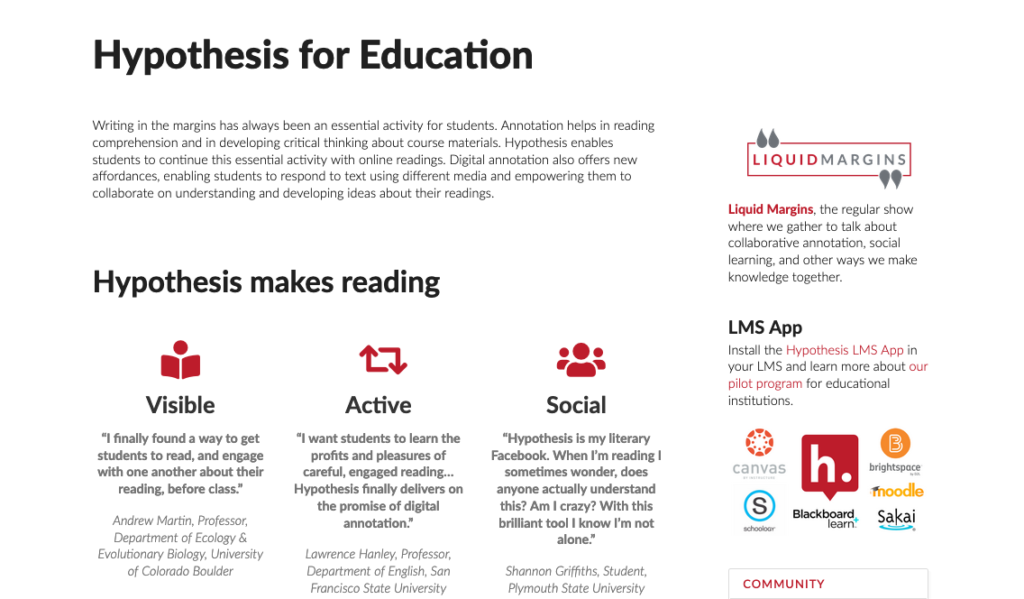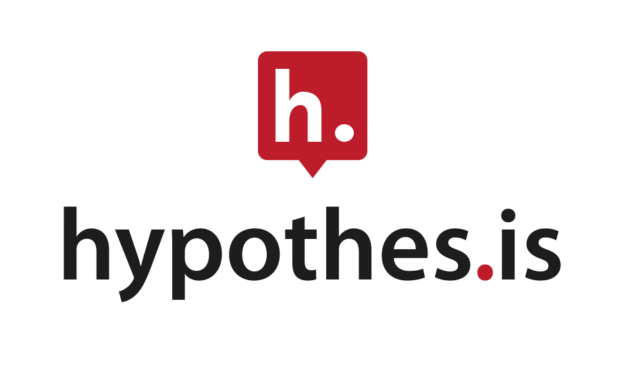I’ve always thought of annotations as another form of marginalia. Annotating a text with insightful comparisons and word definitions was, at least for me, part of the private and intimate reading feeling. Though sometimes I would share these observations and findings with others, for the most part, it was a practice done on my own; it was part of my learning process. However, I’m learning now that this process is something to be shared; done in conjunction with others. Especially during distance learning, these digital annotations can be a social activity that has the potential to create and maintain lively discussions.
On September 29th, I attended the ITP Skills Lab session on the use of Hypothes.is: Doing Collaborative Text Annotation Online with Hypothes.is with Julie Fuller. During the workshop, Fuller shared with everyone how this tool, if used effectively, could be used as part of every teacher’s pedagogical technique. Hypothes.is whose mission statement is “to enable a conversation over the world’s knowledge”, was founded by Dan Whaley, is a free, open-source, digital tool that allows you to annotate almost anything on the web. Through this mission, Hypothes.is has become a great way to not only read but also learn collaboratively in a virtual environment. I was surprised by the examples presented during the workshops of students communicating openly, critically, and organically, just through the process of annotating a piece of text for school.
Host Fuller and an experienced educator who uses Hypothes.is explained that this tool can be a low stake way for students to participate in class. Those who are particularly shy in the classroom can still voice their opinions by adding an insightful annotation or replying to others. However, they also emphasized the importance of not using this tool or other pieces of technology just for the sake of it. In order to be effective, educators must always keep the learning objectives in the forefront.

Educators wanting to model the usefulness of the tool and its easy to use interface may do so first by creating a group. The group will host all of the students’ annotations, and the search function will serve well when the educator wants to take note of everyone’s participation for grading purposes. The instructor might need to scaffold this technique by first explaining the purpose of annotations, setting clear expectations, and showing examples. The host method that a great method for getting started with Hypothes.is is for educators to pre-populate the text with questions and prompts like asking students “gloss” over new vocabulary. Through this method, students learn and understand that annotations can serve as a way to help each other to digest difficult texts.
After this workshop, I was able to meet and speak with Hypothes.is ‘s VP of education, Jeremy Dean, during my Doing This with Novel course by professor Jeff Allred. During his visit, Dean emphasized the importance of defining Hypothes.is as a digital tool instead of a platform like Facebook. We also spoke on annotating on the web and fact-checking fake news, how the team is working on annotating videos on Youtube through transcription, and the constant struggle of public knowledge and ownership.
I’m excited to use this tool not just as a student here but also as an educator.



